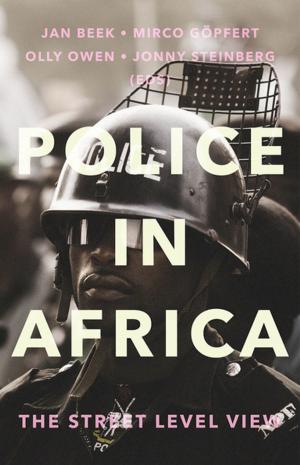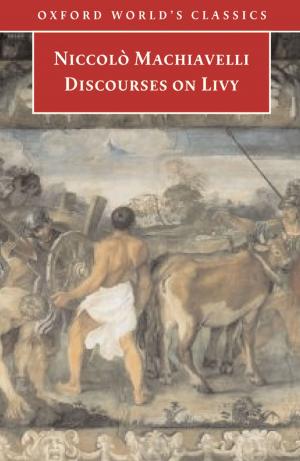| Author: | ISBN: | 9780190290627 | |
| Publisher: | Oxford University Press | Publication: | July 7, 2005 |
| Imprint: | Oxford University Press | Language: | English |
| Author: | |
| ISBN: | 9780190290627 |
| Publisher: | Oxford University Press |
| Publication: | July 7, 2005 |
| Imprint: | Oxford University Press |
| Language: | English |
This exceptionally readable and down-to-earth handbook is destined to become the definitive guide to psychobiographical research, the application of psychological theory and research to individual lives of historical importance. It brings together for the first time the world's leading psychobiographers, writing lucidly on many of the major figures of our age - from Osama Bin Laden to Elvis Presley. The first section of the book addresses the subject of how to construct an effective psychobiography. Editor William Todd Schultz introduces the field, provides valuable definitions of good and bad psychobiography, discusses an optimal structure for biographical data. Dan McAdams explores the question of what psychobiographers might learn from current research in personality psychology. Alan Elms delivers wise advice on the tricky subject of theory choice in psychobiography. William Runyan asks why Van Gogh cut off his ear, and in the process explains how one evaluates competing interpretations of the same event in a subject's life. And Kate Isaacson describes a template for use in multiple-case psychobiography. Never before has method in psychobiography been so clearly and explicitly addressed. Those just getting started in the field will find in Section One a detailed roadmap for success. The remaining sections of the book are composed of richly engaging case studies of famous artists, psychologists, and politicians. They address compelling questions such as: What are the subjective origins of photographer Diane Arbus's obsession with freaks? In what ways did the early loss of Sylvia Plath's father affect her poetry and presage her suicide? Out of what painful life experience did James Barrie drive himself to invent Peter Pan? Why did Elvis experience such difficulty singing the song "Are You Lonesome Tonight?" What accounts for Bin Laden's radicalism, Kim Jong Il's paranoia, George W. Bush's conflict with identity? Why did Freud go so disastrously astray in his analysis of Leonardo? What made psychologist Gordon Allport's meeting with Freud so pungently significant? How did the loss of his father determine major elements of Nietzsche's philosophy? These questions and many more get answered, often in surprising and incisive fashion. Additional chapters take up the lives of Harvard operationist S.S. Stevens, Erik Erikson, Edith Wharton, Saddam Hussein, Truman Capote, Kathryn Harrison, Jack Kerouac, and others. Within each case study, tips are proffered along the way as to how psychobiography can be done more cogently, more intelligently, and more valuably.
This exceptionally readable and down-to-earth handbook is destined to become the definitive guide to psychobiographical research, the application of psychological theory and research to individual lives of historical importance. It brings together for the first time the world's leading psychobiographers, writing lucidly on many of the major figures of our age - from Osama Bin Laden to Elvis Presley. The first section of the book addresses the subject of how to construct an effective psychobiography. Editor William Todd Schultz introduces the field, provides valuable definitions of good and bad psychobiography, discusses an optimal structure for biographical data. Dan McAdams explores the question of what psychobiographers might learn from current research in personality psychology. Alan Elms delivers wise advice on the tricky subject of theory choice in psychobiography. William Runyan asks why Van Gogh cut off his ear, and in the process explains how one evaluates competing interpretations of the same event in a subject's life. And Kate Isaacson describes a template for use in multiple-case psychobiography. Never before has method in psychobiography been so clearly and explicitly addressed. Those just getting started in the field will find in Section One a detailed roadmap for success. The remaining sections of the book are composed of richly engaging case studies of famous artists, psychologists, and politicians. They address compelling questions such as: What are the subjective origins of photographer Diane Arbus's obsession with freaks? In what ways did the early loss of Sylvia Plath's father affect her poetry and presage her suicide? Out of what painful life experience did James Barrie drive himself to invent Peter Pan? Why did Elvis experience such difficulty singing the song "Are You Lonesome Tonight?" What accounts for Bin Laden's radicalism, Kim Jong Il's paranoia, George W. Bush's conflict with identity? Why did Freud go so disastrously astray in his analysis of Leonardo? What made psychologist Gordon Allport's meeting with Freud so pungently significant? How did the loss of his father determine major elements of Nietzsche's philosophy? These questions and many more get answered, often in surprising and incisive fashion. Additional chapters take up the lives of Harvard operationist S.S. Stevens, Erik Erikson, Edith Wharton, Saddam Hussein, Truman Capote, Kathryn Harrison, Jack Kerouac, and others. Within each case study, tips are proffered along the way as to how psychobiography can be done more cogently, more intelligently, and more valuably.















